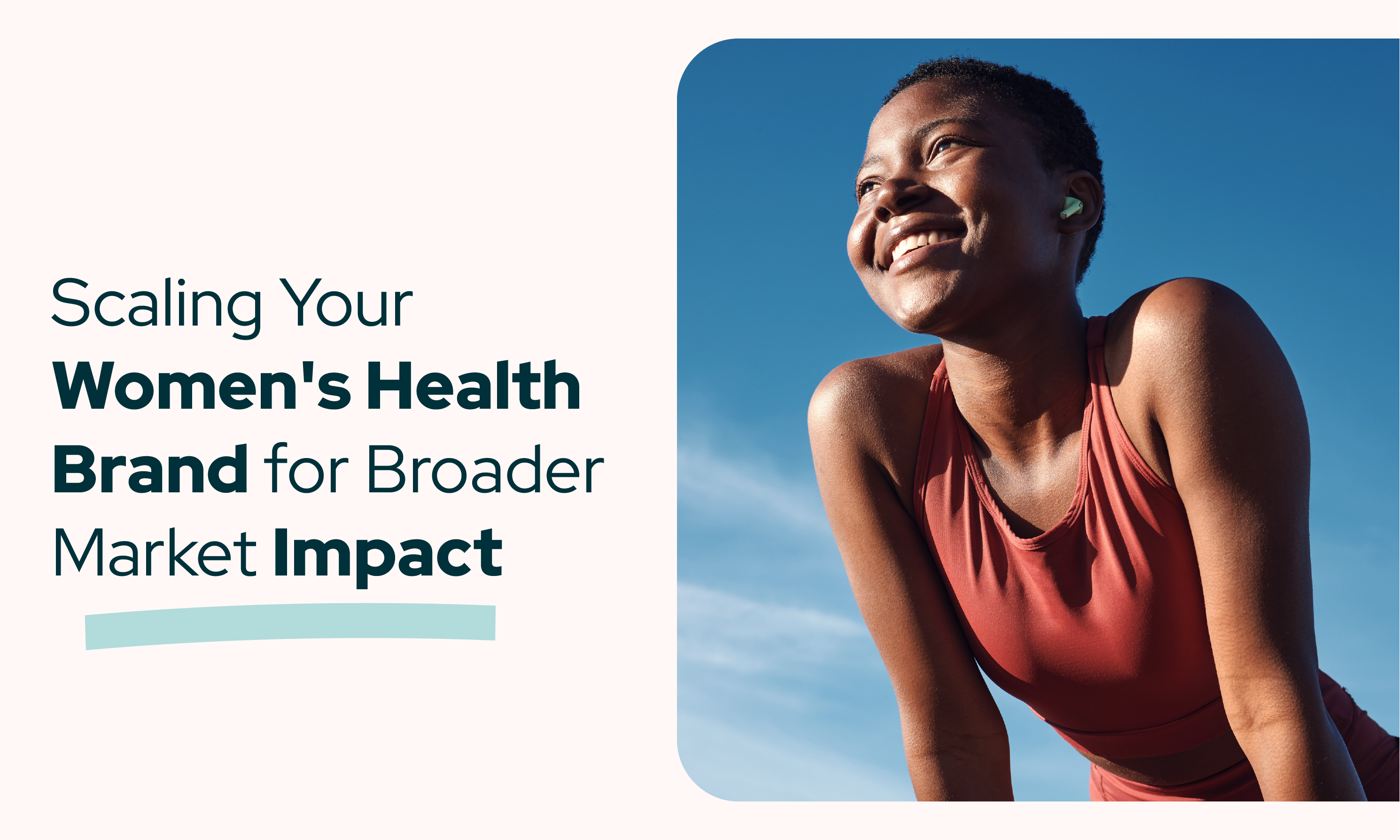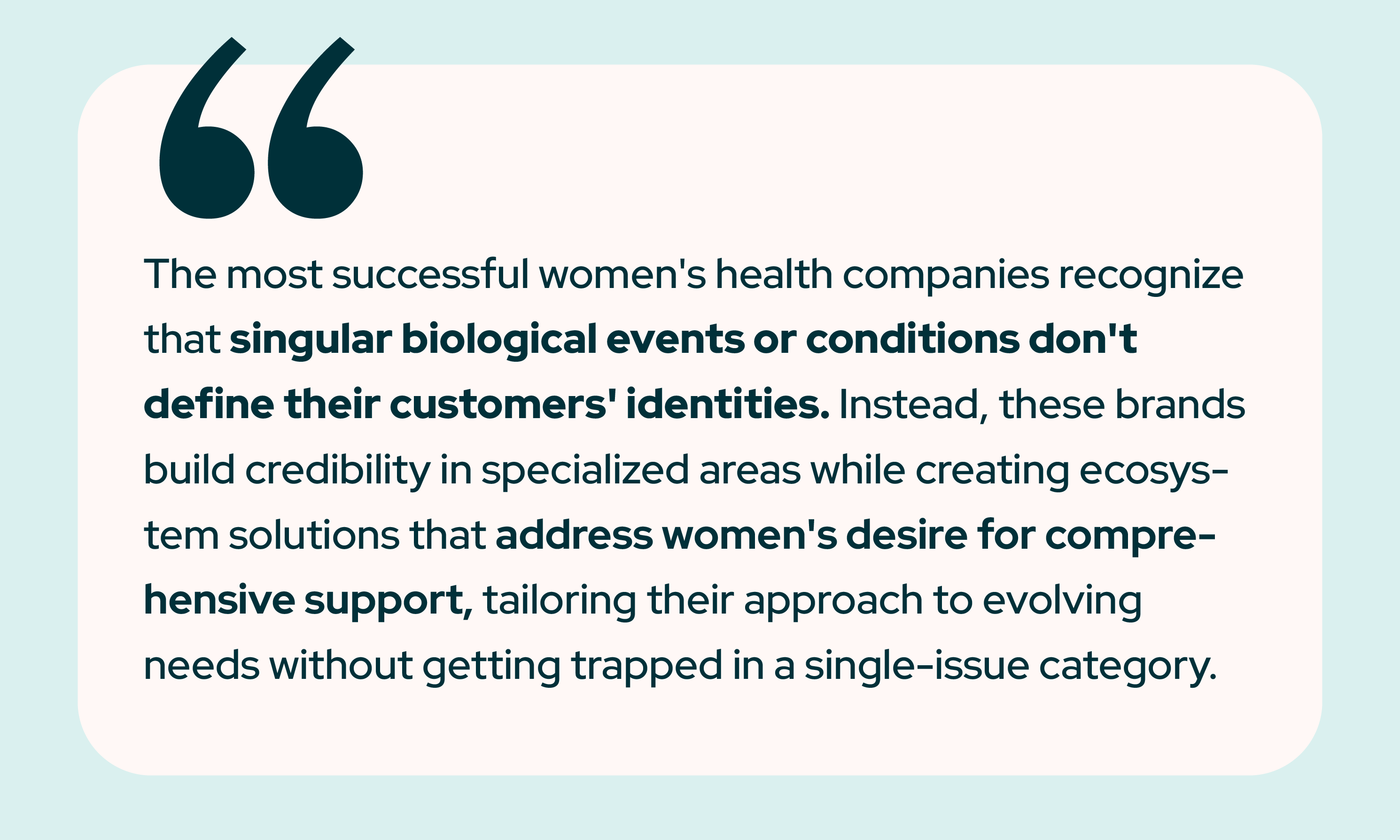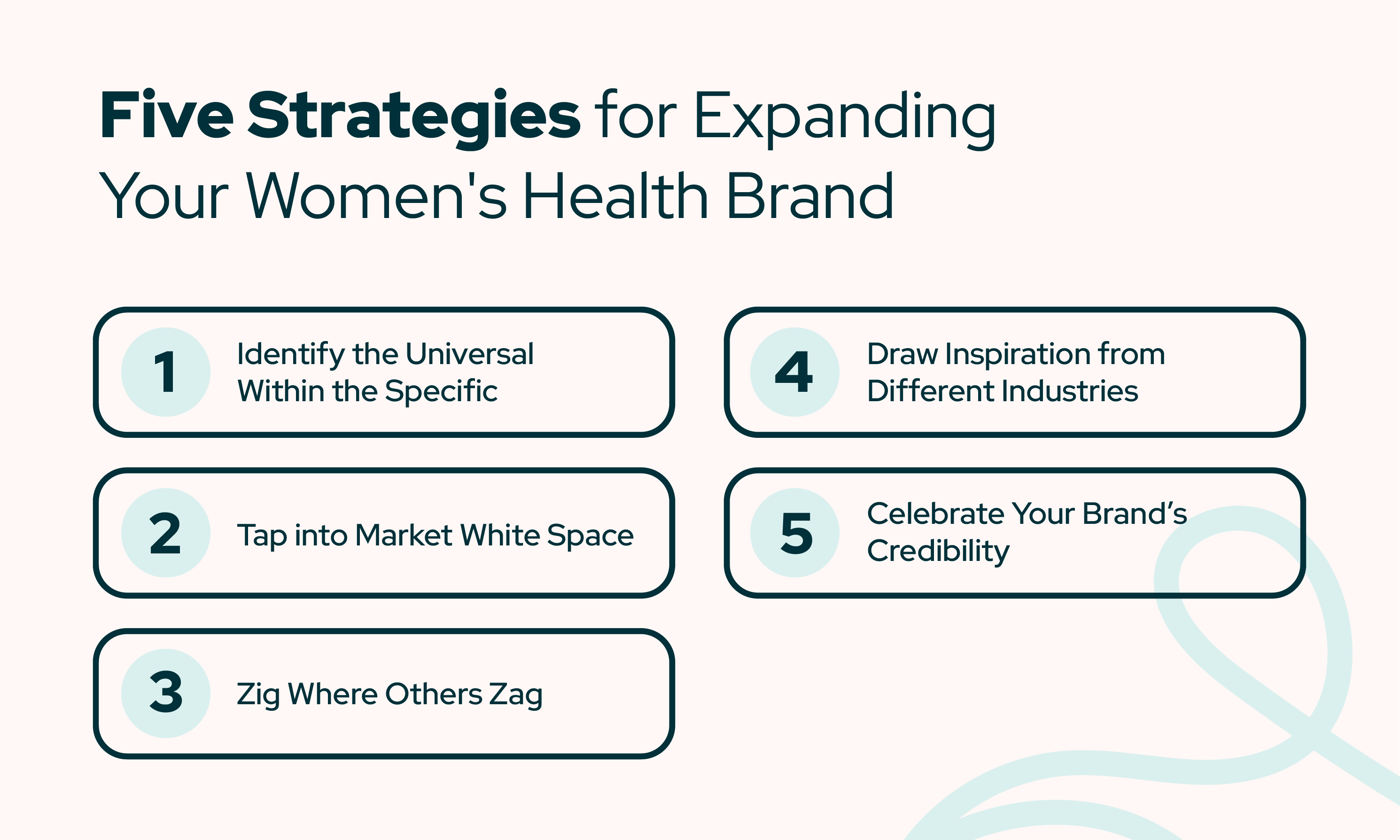We're Proud to Sponsor
The Women’s Health Innovation Summit in Boston Nov 4-6, 2025

When Maven Clinic secured its unicorn status with a $1 billion valuation in 2021, it wasn't just a win for the virtual care provider—it was a watershed moment for the entire women's health sector.
Yet for every Maven success story, dozens of promising femtech startups remain trapped in their specialized corners, victims of the very expertise that initially set them apart. They’re the fertility tracking apps on our phones and the vulva balm in our medicine cabinets.
The problem isn't their solutions—it's their storytelling. In a market that topped $50 billion in 2021 and is projected to reach over $100 billion by 2030, the brands poised to capture the biggest slice aren't necessarily those with the most advanced technology, but those who've mastered the art of expanding their narrative without diluting their credibility.
In women's health, expertise is currency. The deeper your knowledge in specialized areas, the more credibility you build with both practitioners and patients. This expertise becomes what sets you apart in a crowded marketplace and earns trust from those seeking solutions to specific challenges. And there's no shortage of specialized challenges to solve—the global menopause market alone is expected to reach $27.63 billion by 2033, while fertility supplements represent a $21.6 billion opportunity.
But the very specialization that establishes your credibility can also become an invisible ceiling limiting your growth potential. Many women's health brands find themselves pigeonhole-ed by their expertise. According to Forbes, investors often have trouble distinguishing between femtech solutions, which fuels skepticism and leads many to view these ventures as passion projects rather than serious businesses.
Women's health encompasses far more than reproductive care and period products, yet the market remains fragmented. As Frost & Sullivan told PharmaVoice, that there’s currently no product designed to support women throughout every stage of life.
This represents a significant market opportunity, especially considering that sexual and reproductive health combined with maternal and newborn care account for just 5% of women's health burden. Close to half of the health issues women face are tied to conditions that either occur more often in women or show up differently in them, like headaches, autoimmune diseases, and depression.
This suggests an opportunity for brands to leverage their specialized expertise as an entry point rather than a boundary. The most successful women's health companies recognize that singular biological events or conditions don't define their customers' identities. Instead, these brands build credibility in specialized areas while creating ecosystem solutions that address women's desire for comprehensive support, tailoring their approach to evolving needs without getting trapped in a single-issue category.

Brand marketing is about shaping a company's overall perception. At Helen + Gertrude, we aim to build a long-term emotional connection with a desired audience. This involves evaluating positioning, brand values, and core messages that communicate who the company is and why it exists.
This perspective is especially crucial for specialized women's health brands looking to expand their reach. Your challenge isn't merely adding products or services, it's reshaping how audiences perceive what you offer and why it matters to them.
It’s like building outward from your sweet spot. Each step should still feel anchored in what you do best, but also open the door to more women’s real-world needs. The key is finding that sweet balance—being clear without oversimplifying, and combining your expertise with genuine empathy.
Maven Clinic offers a masterclass in navigating this transition. Founded in 2014, Maven initially focused on virtual maternal health and fertility services, a critically important but defined segment of women's healthcare. Their specialized approach quickly established them as experts in this space.
However, Maven recognized that pregnancy and fertility represent just chapters in women's health journeys, not the entire story. They saw an opportunity to leverage their trusted position to address interconnected needs.
Rather than diluting their expertise, Maven strategically expanded by carefully selecting adjacent services that maintained narrative coherence:
The brilliance of Maven's approach wasn't just in adding services but in reframing their fundamental positioning. They evolved from pregnancy specialists to trusted partners in the women's health journey. This repositioning wasn't about abandoning their foundation, but opening pathways to broader relevance.
Today, Maven operates as a comprehensive women's and family health platform valued at over $1.7 billion, a testament to its ability to successfully resolve specialists' dilemmas without compromising their core expertise.

How can your specialized women's health brand navigate this paradox successfully? Consider these principles:
